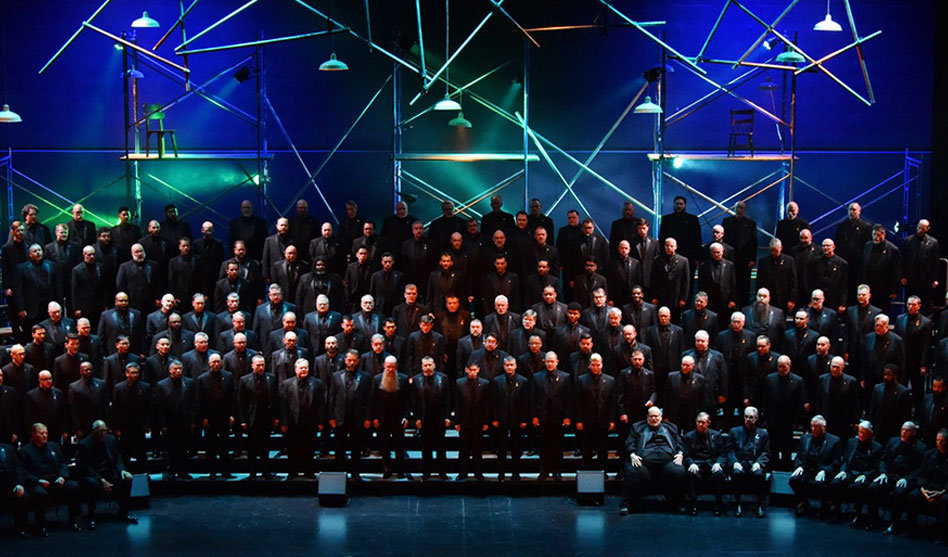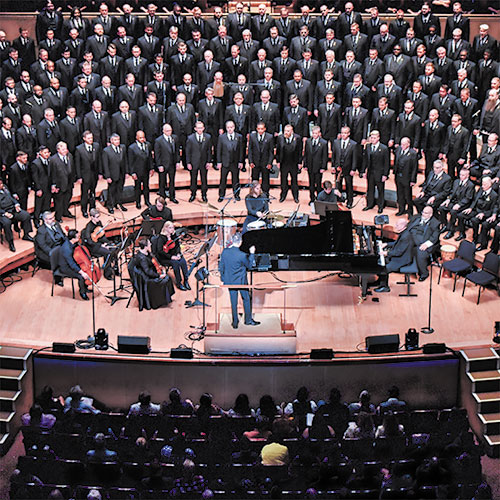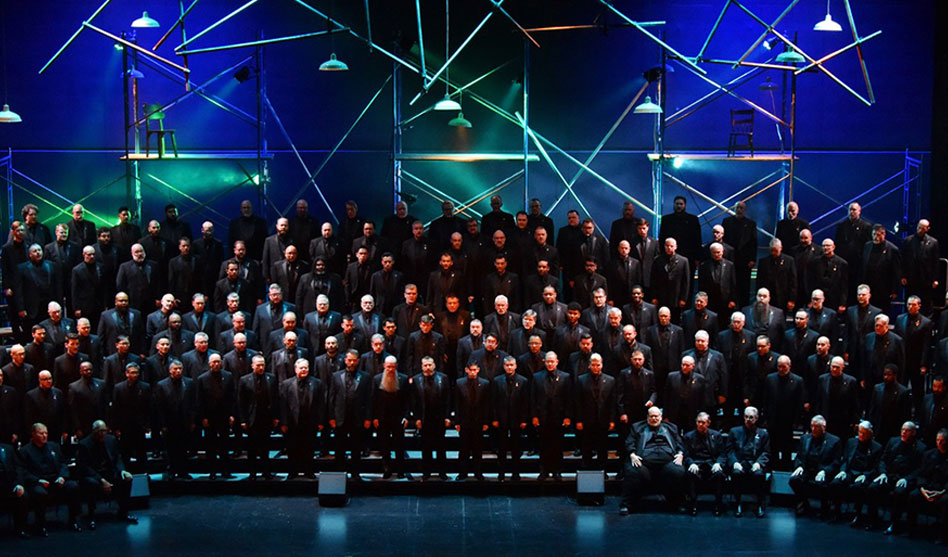TCC premiering work about Tulsa Race Massacre at Meyerson before Carnegie Hall appearance
DAVID TAFFET | Senior Staff Writer
taffet@dallasvoice.com
The Greenwood neighborhood of Tulsa was known as Black Wall Street, and the thriving business district and surrounding residential area were nationally known, according to the Tulsa Historical Society. But in 1921, participants in what’s become known as the Tulsa Race Massacre destroyed the neighborhood, murdering as many as 300 residents.
The Turtle Creek Chorale has commissioned a new work — Dreamland: Tulsa 1921, based on the incidents of the massacre — that will premiere at the Meyerson Symphony Center on July 2 and 3. Then on July 9, the chorus will perform the work at Carnegie Hall in New York City with members of the Philadelphia Gay Men’s Chorus before taking the work to Tulsa on Aug. 6.
 The name Dreamland comes from the name of a theater in the Greenwood district that was one of the first buildings destroyed in the riot.
The name Dreamland comes from the name of a theater in the Greenwood district that was one of the first buildings destroyed in the riot.
In its description of the event, the Tulsa Historical Society writes that on May 30, 1921, a young Black man named Dick Rowland was riding an elevator with a white woman. “The details of what followed vary from person to person,” they explain.
Whatever happened, Rowland was arrested the next day. The Tulsa newspaper wrote an inflammatory account of the incident, instigating a confrontation between Black and white armed mobs. Shots were fired and the outnumbered Greenwood residents retreated to their neighborhood.
On June 1, white rioters looted and burned Greenwood in an attack that lasted more than 24 hours. More than 6,000 residents of the neighborhood were rounded up and held at the Convention Hall and the Fairgrounds for up to eight days.
By June 2, 35 blocks had been burned, and as many as 300 people had been killed (there’s never been an exact count of those who were killed, and Tulsa is just now looking for a mass grave). About 1,250 homes were destroyed along with churches, schools, a hospital, a library and all of the businesses along Black Wall Street.
Charges against Rowland were eventually dropped, but no one was ever prosecuted for the murderous riot.
The event was originally called the Tulsa Race Riot, which allowed insurance companies to deny claims.
Today it’s more likely to be referred to as the Tulsa Race Massacre to acknowledge the loss of innocent life.

TCC full chorus
Chorale Artistic Director Sean Baugh grew up in Tulsa, but even so, he said, “I never learned about the horrific Tulsa Race Massacre. It was hidden from us.”
While he had heard of the event casually through conversation, it wasn’t until last year when he saw HBO’s The Watchman that prominently featured the massacre that he more fully understood its impact on generations of Black Tulsans.
“I had known the story in the far back reaches of my mind,” he said. “I felt it was a story that could uniquely be told through music.”
Baugh said the process of developing Dreamland has been educational for him and for members of the chorale, and he hope the program will educate their for their audiences, too.
Once he had the idea of turning the story of the Tulsa Race Massacre into a chorale piece, Baugh knew he needed to find a composer and librettist. So he turned to Marques Garrett, “a young Black composer well known in chorale circles.”
Then Garrett brought up librettist Sandra Seaton’s name. The two had never worked together before and, Baugh said, the chorale hasn’t performed any of their works before. So it would be a new experience for all of them.
The piece they created together runs about 30 minutes and explores issues of racial equity. The rest of the concert puts the piece into the context of what’s happening today, including another premiere: “Where Are the Bodies?” by Reginal Wright.
Baugh said the Chorale has “lots of guests” participating in this performance, including Denise Lee, who will also be traveling to New York for the performance there, guest conductors both in Dallas and New York and Paul Mason and Major Attaway performing with the chorale at Carnegie Hall.
Baugh said the Meyerson show will be a more visually interesting experience. He hopes audiences will come with the anticipation of being educated and that they will leave inspired and entertained.
“The program is a wide mixture of intense and beautiful story telling mixed with inspiring music,” Baugh said. “It’s not a dark evening. We won’t leave you in a dark place.”
Dreamland is part of an ongoing diversity and inclusion effort headed by TCC Executive Director Jeremy Wayne, who said, “We’ve been talking to people and asking questions,: What can we do better as an organization? Are we doing auditions in right places? Are we singing in right places?”
He said the chorale joined 30 to 40 other nonprofits to form Dallas Truth, Racial Healing and Transformation.
While they have made a good start in increasing the number of Black singers and including more music by Black artists, Wayne said they have even more work to do increasing the number of Hispanic members.
“They’re feeling not as included in the repertoire we’re doing,” he said, noting that there’s not as much Hispanic chorale music available. The solution? Answering the question of “How can we get more Hispanic work written?”
Tickets for the Dallas concert are available at TurtleCreekChorale.com. Tickets for the New York concert are available at CarnegieHall.org.

